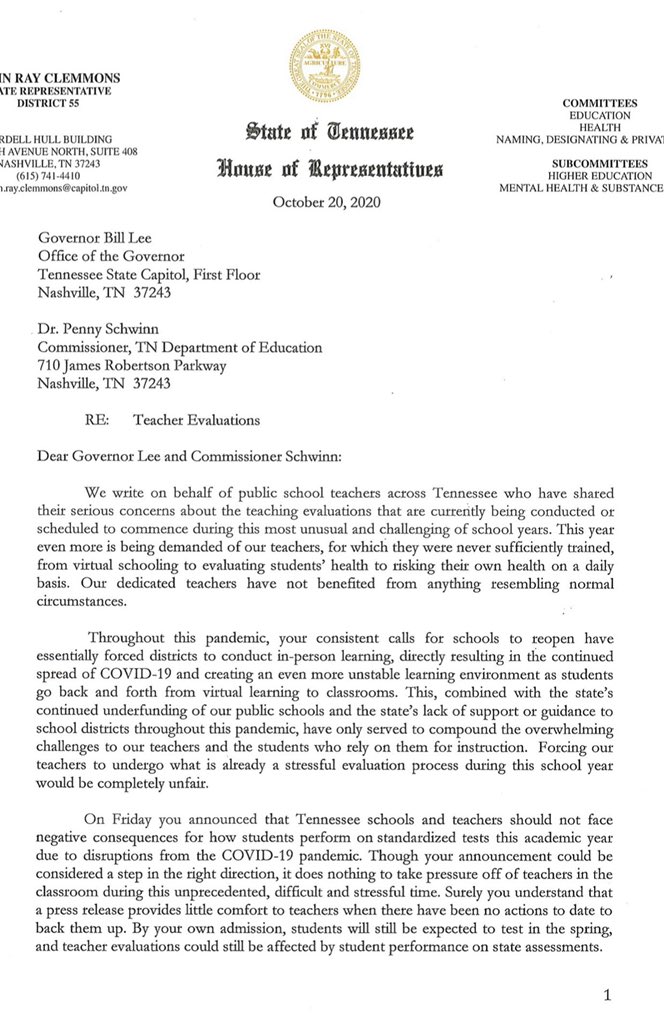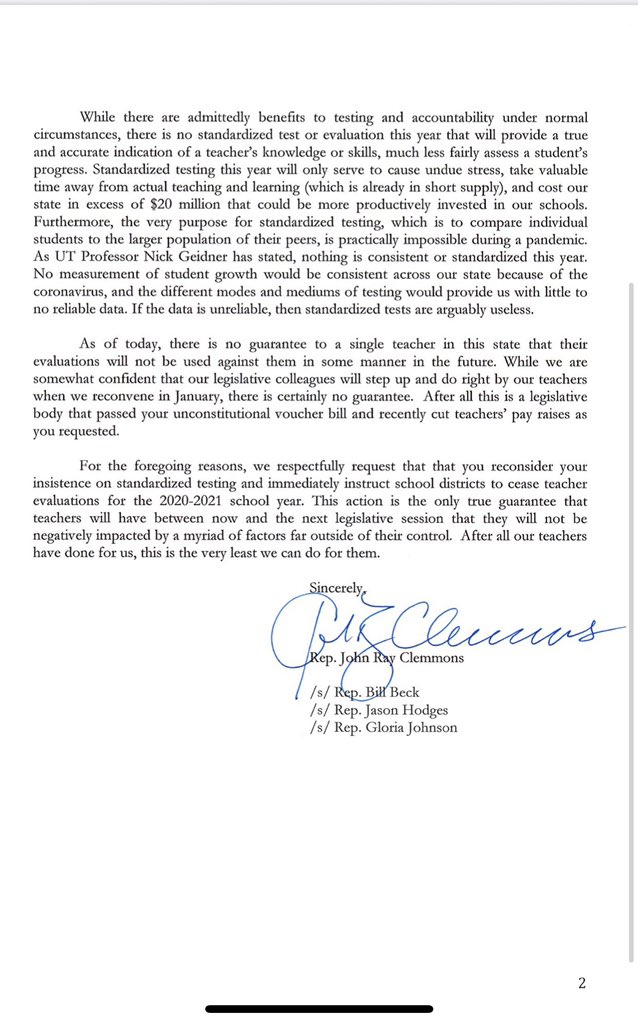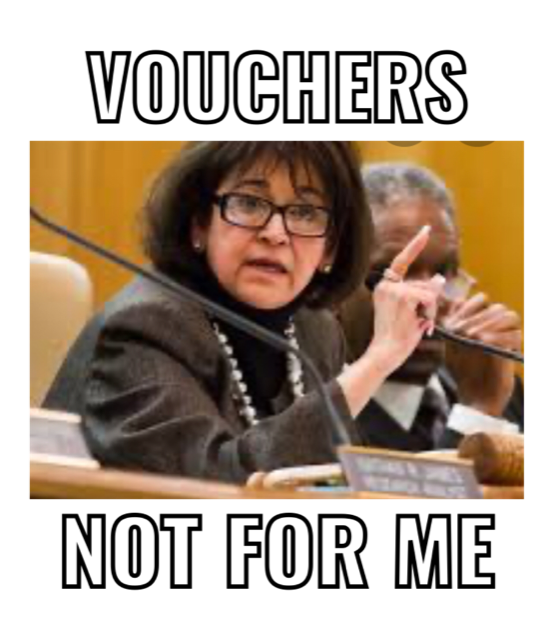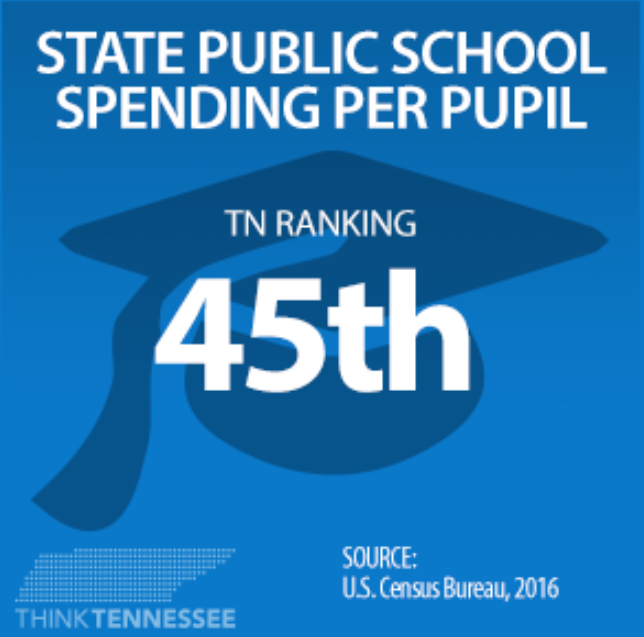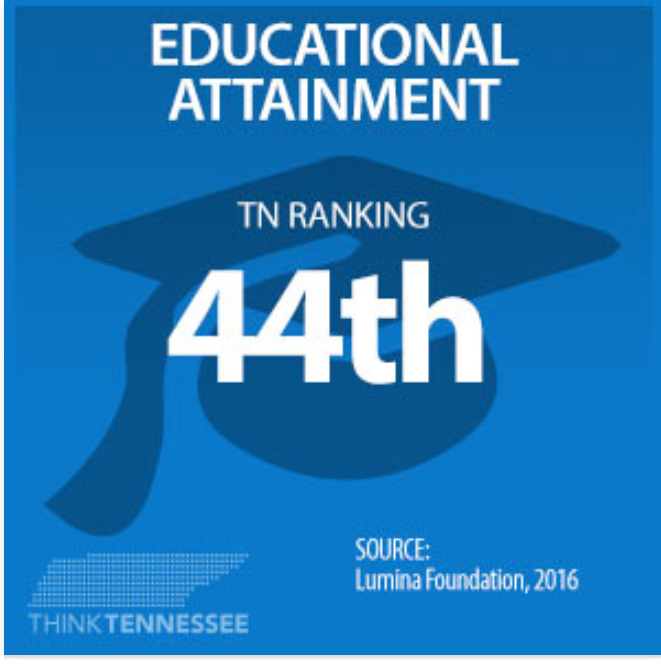Nashville education blogger TC Weber offers some insight into what the General Assembly may be considering around education policy in 2021.
Here’s some of what he has to say:
First up is addressing BEP funding for schools. State funding is typically contingent on attendance numbers. Due to the pandemic, school districts across the state are losing students. According to Chalkbeat, the statewide decline in student enrollment this fall would normally decrease the allocation by at least $320 million.
Recognizing, that if those lost students come back next year when the Coronavirus is more manageable, districts will be under economic hardship, Representative Cerpicky has introduced a school stabilization bill that would in essence freeze funding at current levels, providing relief to districts.
To his credit, Cerpicky understands that this is just a beginning and he would like the General Assembly to conduct a review of the current BEP formula. Most stakeholders recognize the shortcomings of the current model, which was adopted in 1992, and its failure to adjust for inflation, government mandates, a growing charter school sector, and expenses driven by changes in technology. There seems to be a growing willingness to redress it.
Cerpicky’s thinking is that if a bill keeping districts financially solvent for another year can be passed, it would create a window of opportunity to address the BEP. Legislators would have 14 to 15 months in which to address the BEP formula in Education Committee meetings. I can’t disagree with that thinking.
Legislators for the most part appear to understand the importance of freezing district funding and appear amendable to keeping funding frozen. Well, all except Chairman Sexton who thinks that only schools who have open school buildings deserve protection. Apparently, he is unaware of the level of work teachers are doing remotely to keep students engaged. Somebody needs to hand him a clue. Instead of criticizing Memphis for taking their savings and giving teachers a 1% raise, he should be praising them for recognizing the level of sacrifice being made by teachers and principals.
The funding picture needs to be clarified as soon as possible so that superintendents can begin accurately creating their budgets for the next school year.
Equally important is a decision on whether TNReady will be administered, or not, and if administered, what impact scores will have on schools, teachers, and students. Most recognize that the administration of testing at this juncture is an exercise in futility. But there is a contingency who believes that the tests should be administered though results should not be used for accountability. My argument is that if I hold a scrimmage game and I keep score, despite calling it practice, everybody knows who the winners and losers are.
Not testing this year will not permanently damage kids, in fact, it would provide opportunities for additional instructional time. It’s been floated out there that this year’s tests should be canceled and money instead is allocated to summer school. I don’t know if that’s feasible or not, but it makes a lot more sense.
Here are some notes on the historically underfunded BEP:
Note here that TACIR – a state organization that analyzes state and local government – says the BEP is underfunded by $1.7 billion. Even with the COVID “savings,” it seems our schools need a drastic increase in investment.
Will the General Assembly get serious about actually coughing up that kind of cash? I seriously doubt it.
They should.
But, Gov. Lee has shown his true colors — he’s pushed a privatization agenda and he cancelled a planned teacher pay raise this past year. It’s not clear lawmakers have the courage or fortitude to challenge Lee when it comes to funding. Nor is it clear they will do what it takes to pump $1.7 billion into our schools.
We’re now on our second consecutive governor named Bill. Mr. Haslam revised the BEP in a way that virtually ensured we’d end up where we are now — with an inadequate funding mechanism for our state’s schools. Gov. Lee lacks the imagination to dream big for schools, instead preferring to pursue a privatization agenda that makes his friend Betsy DeVos proud.
The General Assembly “might” do something on school funding. Freezing the normal allocation to prevent significant funding loss as a result of COVID is a good start. But, there’s much more to be done. Lawmakers shouldn’t use the COVID situation as a scapegoat to allow them to get out of the much more challenging work of creating a long-term, sustainable BEP solution.

For more on education politics and policy in Tennessee, follow @TNEdReport
Your support – $5 or more – makes publishing education news possible.






